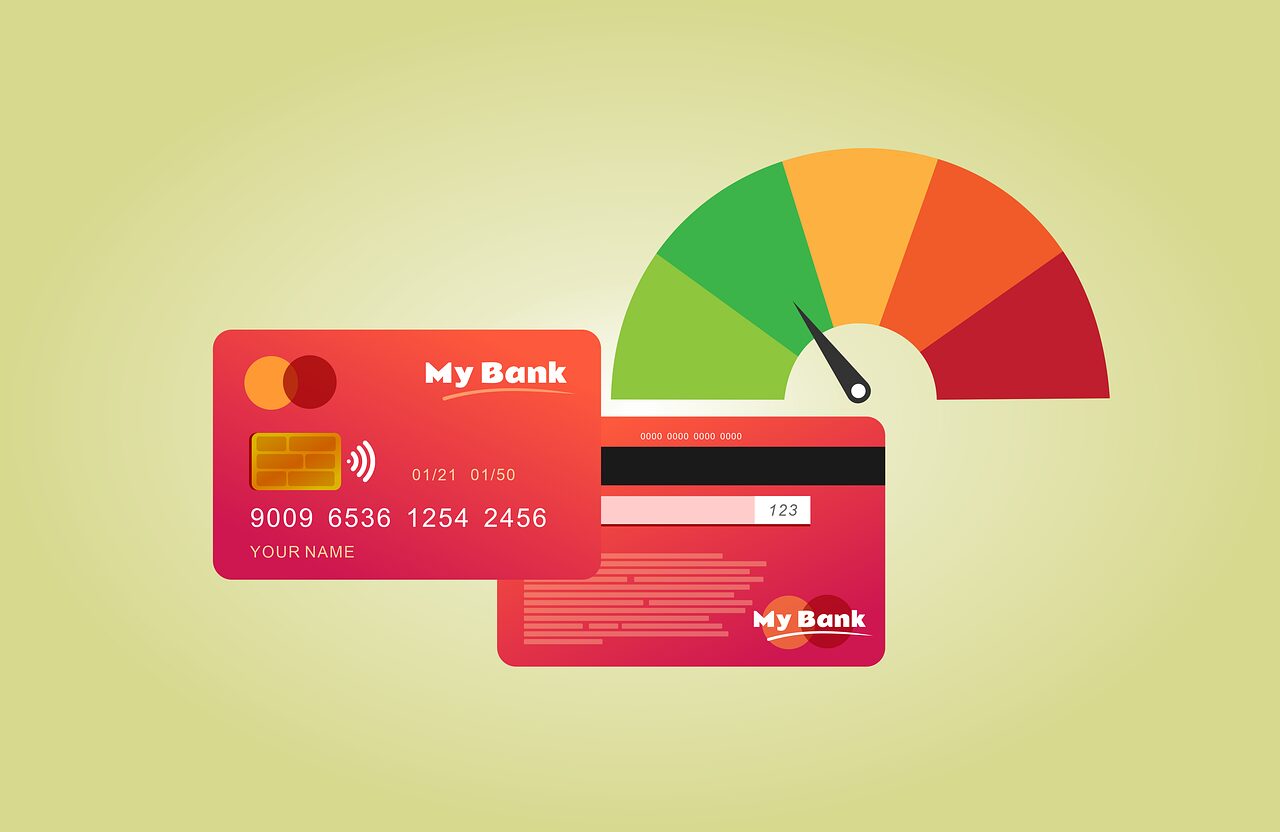Can You Get a Mortgage If You Have Student Loans?

Buying a home is a major financial milestone, but student loan debt raises concerns about mortgage eligibility for many Americans. With the rising cost of education, millions of people carry debt from student loans, and many wonder whether homeownership is within reach.
The common question is: Can I buy a home with student loans?
The short answer: Yes, but your student loans can impact your mortgage approval in several ways.
Lenders consider multiple factors, including your debt-to-income ratio (DTI), credit score, and loan repayment terms. While student loans can affect these areas, they do not automatically disqualify you from getting a mortgage. There are loan programs designed to help borrowers with student debt purchase a home.
This guide will explain how student loans influence mortgage eligibility, what options are available, and the steps you can take to increase your chances of getting approved for a home loan. Whether you’re currently paying off student loans or considering homeownership soon, understanding the mortgage process will help you make informed financial decisions.
Understanding How Student Loans Affect Mortgage Eligibility

Student loans are a form of debt, and like any other financial obligation, they play a role in determining your mortgage eligibility. To gauge your ability to take on a mortgage, lenders assess your financial health by looking at your debt-to-income ratio (DTI), credit score, and loan repayment terms. Here’s how each of these factors comes into play.
Debt-to-Income Ratio (DTI) and Why It Matters
Your debt-to-income ratio (DTI) is one of the most significant factors lenders consider when evaluating your mortgage application. It measures the percentage of your gross monthly income for paying debts, including student loans, credit cards, car loans, and other outstanding obligations.
Ideal DTI Range for Mortgage Approval
- Below 36% – Ideal range; strong chance of mortgage approval.
- 36% to 43% – Acceptable, but may require compensating factors like a higher credit score.
- Above 43% – Risky territory; mortgage approval may be challenging, depending on the lender and loan program.
- 50%+ – Many lenders will reject applicants with DTIs above 50%, but some loan programs, such as FHA loans, allow higher DTIs in some instances.
Since student loans are a long-term financial commitment, they can significantly impact your DTI. However, having student debt does not automatically disqualify you from getting a mortgage—especially if you manage it responsibly.
Credit Score Impact

Your credit score is a key factor in determining mortgage eligibility and the interest rate you receive. Student loans can affect your credit score in both positive and negative ways.
How Student Loans Influence Your Credit Score
Positive Impacts:
- Building credit history – Student loans are often one of the first credit accounts young borrowers open, helping establish a credit history.
- On-time payments improve credit – Making consistent, on-time payments boosts your payment history, which makes up 35% of your FICO score.
- Credit mix diversification – Having installment loans (e.g., student loans) and revolving credit (e.g., credit cards) improves your credit mix, positively impacting your score.
Negative Impacts:
- Missed or late payments – Student loan delinquencies severely hurt your credit score and can remain on your report for up to seven years.
- High student loan balances – While student loans don’t directly impact credit utilization (which applies mainly to credit cards), large balances can still make lenders wary about your ability to take on additional debt.
- Defaulting on loans – If you stop making payments and default on your loans, your credit score will drop significantly, making it difficult to qualify for a mortgage.
The Importance of On-Time Payments
Since payment history is the most significant factor in your credit score, prioritizing on-time payments is crucial. Even if you can only afford the minimum payment, making payments consistently will help your creditworthiness when applying for a mortgage.
Loan Types and How Lenders view them
Different types of student loans can affect how lenders assess your financial situation.
Federal vs. Private Student Loans
| Loan Type | How It Affects Mortgage Eligibility |
| Federal Student Loans | Generally more flexible with repayment options, which can lower your DTI. |
| Private Student Loans | Often, they have higher interest rates and fewer repayment options, making them more burdensome in DTI calculations. |
Lenders often prefer applicants with federal student loans because of the availability of income-driven repayment plans and deferment options.
Income-Driven Repayment (IDR) Plans and Their Effect on DTI Calculations
Suppose you have federal student loans and are enrolled in an Income-Driven Repayment (IDR) plan. In that case, your lender will calculate your DTI based on your monthly payment, which can significantly lower your DTI and improve mortgage approval chances.
However, some lenders use a default percentage of the total loan balance when calculating DTI—typically 1% of the total balance—even if your actual monthly payment is lower. For example:
- If your student loan balance is $50,000 and you’re on an IDR plan with a monthly payment of $200, some lenders will still calculate your DTI as if you were paying $500 per month (1% of $50,000) instead of your actual payment.
- Fannie Mae and Freddie Mac allow lenders to use your actual documented IDR payment, but FHA loans may default to a higher assumed payment if an actual payment is not reported on your credit report.
How to Minimize the Impact on DTI:
- If your lender uses 1% of your balance to calculate DTI, provide documentation showing your actual IDR payment to request a more accurate calculation.
- Consider refinancing student loans if it will lower your monthly payment (but be aware of losing federal loan benefits).
- Pay off smaller debts to lower your overall DTI before applying for a mortgage.
Loan Programs That Help Borrowers with Student Debt

FHA Loans
Federal Housing Administration (FHA) loans are a popular choice for borrowers with student debt because of their low down payment requirements and flexible credit guidelines.
Key Benefits:
- Lower Down Payment – You can qualify with as little as 3.5% down if your credit score is 580 or higher.
- More Lenient DTI Ratios – FHA loans typically allow DTI ratios up to 50%, making them more accommodating for borrowers with student loans.
- Flexible Credit Requirements – Even if your student loans have negatively impacted your credit, FHA loans are more forgiving than conventional loans.
Potential Drawbacks:
- Mortgage Insurance Premiums (MIP) – FHA loans require both upfront and monthly mortgage insurance premiums, which increase overall costs.
- DTI Calculation May Assume Higher Payments – If your student loans are in income-driven repayment (IDR), some lenders may still calculate DTI using 0.5% to 1% of the total loan balance instead of your monthly payment.
Conventional Loans (Fannie Mae & Freddie Mac)
Conventional loans follow guidelines Fannie Mae and Freddie Mac set, which offer more favorable student loan considerations than FHA loans.
Key Benefits:
- Student Loan-Friendly Underwriting – Lenders can use your documented student loan payment for DTI calculations rather than assuming a percentage of your total loan balance.
- Options for Excluding Loans in Deferment – If your student loans are deferred for 12 months or longer, they may not be included in your DTI calculation.
- No Mortgage Insurance with 20% Down – Unlike FHA loans, conventional loans do not require private mortgage insurance (PMI) if you put at least 20% down.
Potential Drawbacks:
- Higher Credit Score Requirements – A minimum credit score of 620 is typically required, with better rates for scores above 700.
- Stricter DTI Limits – Some lenders allow up to 50% DTI, but most prefer 43% or lower for approval.
VA Loans (For Eligible Veterans & Service Members)
VA loans, backed by the U.S. Department of Veterans Affairs, offer some of the most student loan-friendly mortgage terms for qualified veterans and active-duty service members.
Key Benefits:
- No Down Payment Required – One of the biggest advantages of VA loans is the 0% down payment requirement, making it easier to buy a home while managing student debt.
- No Private Mortgage Insurance (PMI) – Unlike FHA and conventional loans, VA loans do not require PMI, reducing monthly costs.
- More Favorable DTI Calculation for Student Loans – If your student loan payments are deferred for at least 12 months, they may not be counted toward your DTI ratio.
Potential Drawbacks:
- VA Funding Fee – While there’s no PMI, VA loans come with a one-time funding fee (unless waived due to disability benefits).
- Eligibility Restrictions – Only available to veterans, active-duty service members, reservists, and eligible surviving spouses.
USDA Loans
The U.S. Department of Agriculture (USDA) loan program is designed for homebuyers in rural and suburban areas and offers zero down payment options with low interest rates.
Key Benefits:
- No Down Payment Required – USDA loans allow 100% financing for eligible properties like VA loans.
- Lower Mortgage Insurance Costs – USDA loans have mortgage insurance, but it’s typically cheaper than FHA mortgage insurance.
- Student Loan Calculation for DTI is More Flexible –
- Lenders will use that amount if your student loans are in IDR and your actual payment is documented.
- If no payment is listed on your credit report, lenders may use 0.5% of the total loan balance instead of the full 1% assumption other loan programs use.
Potential Drawbacks:
- Geographic Restrictions – You must purchase a home in an eligible rural area (based on USDA maps).
- Income Limits – Borrowers must meet household income limits to qualify.
Strategies to Improve Mortgage Approval Chances
Lower Your DTI
Since DTI is a significant factor in mortgage approval, lowering it before applying for a loan can make a big difference.
Ways to Reduce Your DTI:
Pay Off Smaller Debts First
- Reducing or eliminating credit card balances, car loans, or personal loans can free up monthly income and lower your DTI.
- Consider using the snowball method (paying off the smallest debts first) or the avalanche method (paying off high-interest debts first) to improve your financial standing.
Consider Student Loan Refinancing (Pros and Cons)
- Pros:
- It can lower your monthly payment, reducing your DTI.
- This may result in a lower interest rate, saving you money over time.
- Cons:
- If you refinance federal student loans, you lose access to income-driven repayment (IDR) plans, deferment, and forgiveness programs.
- Your new lender might require a higher minimum payment than what you currently pay.
Increase Your Credit Score
A higher credit score can improve your mortgage approval odds and help you qualify for lower interest rates.
Ways to Boost Your Credit Score Before Applying:
Make All Payments on Time
- Since payment history makes up 35% of your FICO score, paying student loans, credit cards, and other bills on time is crucial.
Reduce Your Credit Utilization
- Keep your credit card balances below 30% of your credit limit to improve your score.
- If possible, pay off credit card balances completely before applying for a mortgage.
Check and Correct Errors on Your Credit Report
- Review your credit report for errors or inaccuracies that could hurt your score.
- Dispute any mistakes with the credit bureaus (Equifax, Experian, and TransUnion).
- You can access a free credit report once per year at AnnualCreditReport.com.
Save for a Down Payment
A larger down payment can improve mortgage approval chances by reducing the lender’s risk and potentially lowering your monthly mortgage payment.
How a Larger Down Payment Helps:
- Reduces the Loan Amount Needed – A higher down payment means borrowing less, which improves DTI.
- May Eliminate Private Mortgage Insurance (PMI) – If you put 20% down on a conventional loan, you can avoid PMI, saving money.
- Improves Lender Confidence – A strong down payment signals financial stability and may help secure better loan terms.
Using Gift Funds for a Down Payment
- FHA, VA, and USDA loans allow borrowers to use gift funds from family members for the down payment.
- Conventional loans also permit gifted down payments but require documentation of the source.
Programs That Assist Homebuyers with Student Loans
Many state and local government agencies offer down payment and closing cost assistance for borrowers with student loans.
Examples include:
- Fannie Mae’s HomeReady® Program – Allows down payments as low as 3% and considers co-borrowers income.
- Freddie Mac’s Home Possible® Program – Designed for first-time homebuyers with low-to-moderate income.
- State-Specific DPA Grants & Loans – Many states offer grants or low-interest second loans to assist with down payments.
Employer Homebuyer Assistance Programs
Some employers provide grants, forgivable loans, or matching contributions to help employees buy homes.
Steps to Take Before Applying for a Mortgage
A mortgage pre-approval is a crucial first step in the home buying process. It gives you a clear idea of how much you can afford and strengthens your position when making an offer on a home.
Why Getting Pre-Approved is Important:
- Determines Your Maximum Loan Amount – Lenders evaluate your income, debt, credit score, and financial history to determine how much they’re willing to lend.
- Gives You an Edge in Competitive Markets – Sellers take pre-approved buyers more seriously, as it shows financial readiness.
- Identifies Potential Issues Early – If there are credit concerns or DTI issues, you can address them before officially applying for a loan.
How to Get Pre-Approved:
- Choose a lender and submit a pre-approval application.
- Provide necessary documents (pay stubs, tax returns, credit history, etc.).
- The lender will conduct a soft credit check and assess your financial situation.
- Once approved, you’ll receive a pre-approval letter stating the maximum loan amount and estimated interest rate.
Organize Your Financial Documents
Lenders require various documents to verify your financial stability and mortgage eligibility. Having these ready in advance can speed up the approval process.
Essential Documents to Prepare:
Proof of Income & Employment History:
- Recent pay stubs (last 2-3 months)
- Tax returns (last 2 years)
- W-2s or 1099 forms
- Bank statements (last 2-3 months) to show cash reserves
Debt & Loan Statements:
- Student loan balance and payment details
- Credit card balances and minimum payments
- Auto loans, personal loans, or any other outstanding debts
Credit & Asset Information:
- Credit report (lenders will pull this, but checking in advance helps you catch errors)
- Retirement or investment account statements (if applicable)
- Down payment source verification (if using gift funds, you may need a gift letter)
Consult with a Mortgage Specialist for Personalized Guidance
Before applying for a mortgage, speaking with a mortgage professional can help you understand your best options based on your student loan situation and financial goals.
Benefits of Consulting a Mortgage Specialist:
- Clarifies which loan programs fit your situation (FHA, Conventional, VA, or USDA).
- Explains how student loans impact DTI calculations and what adjustments can be made.
- Provides recommendations to improve eligibility, such as paying down specific debts or adjusting repayment plans.
- It helps you explore down payment assistance programs if needed.
Choosing the Right Mortgage Lender:
- Look for lenders, like Home Run Home Loans, who are experienced in working with student loan borrowers.
- Compare interest rates, loan terms, and fees.
- Read reviews and seek recommendations from real estate professionals or financial advisors.
Final Takeaways
Owning a home while managing student loans is possible—it just requires the right approach. While student debt can impact your debt-to-income ratio, credit score, and overall loan eligibility, it does not automatically disqualify you from getting a mortgage. By understanding how lenders evaluate student loans and taking strategic steps—such as lowering your DTI, improving your credit score, and exploring loan programs that favor borrowers with student debt—you can increase your chances of securing a home loan.
Thoughtful financial planning is key. Whether it’s refinancing student loans, paying off smaller debts, saving for a down payment, or utilizing down payment assistance programs, taking control of your finances will put you in the best position for homeownership.
If you’re ready to start the journey toward buying a home, Home Run Home Loans can provide expert guidance tailored to borrowers with student loans. Contact us today to explore your mortgage options and take the next step toward homeownership!

